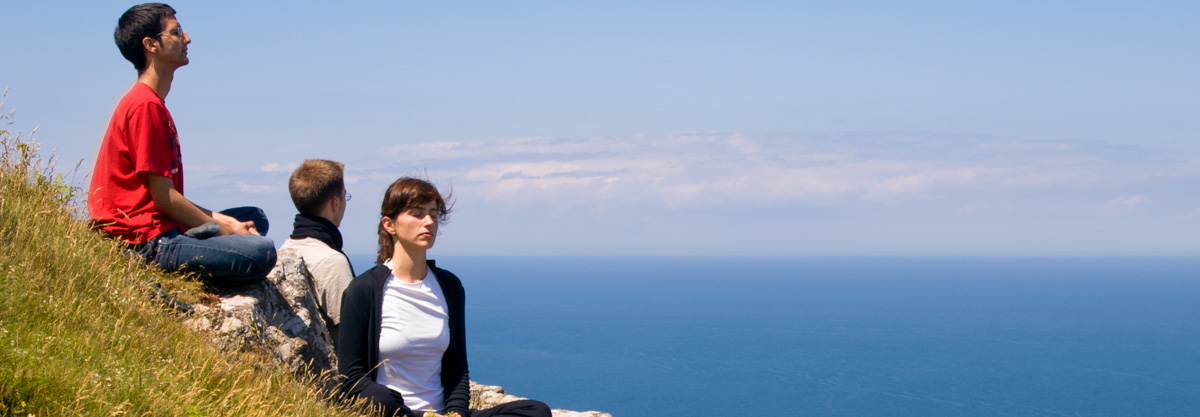
A few years ago I wanted to buy one domain name. I knew with this domain, anyone who wanted to feel good, even perhaps anyone who wanted anything at all, would visit the website. Of course the domain name was taken already. Wonder what it was? Amazon? Nah. Google? No way. E-Bay. Hardly.
The domain name I was looking for was: www.whatsinitforme.com
After all, why do we do anything, and everything? Because there’s something for me, some way I can become healthier, wealthier or perhaps wiser. Or, in a nutshell: to become happier.
Meditation is the one tool I’ve found which can be all things to all people. Well, at least it can be most things good and useful to most people. So how and why do we meditate?
First, let’s see what meditation is.
Sometimes we meditate without realising it. You may be walking along the beach, or hiking in the hills, or bicycling on the open road. Or, you’re sitting somewhere, thinking about anything. Then your mind clicks into a new idea, or into understanding a situation or into a ‘zone’ where everything seems good and right and clear.
I call this a sort of spontaneous meditation. Others may call it daydreaming. If you let the moment pass and just go on to your next activity, or thought or task without using that insights, then perhaps it is just daydreaming.
Unlike daydreaming, meditation is not haphazard. There is a method, which gives us a focus and a purpose in life.

Daydreaming, Paulo Valdivieso from Lisboa, Portugal, on Flickr:
https://www.flickr.com/people/58446476@N00?rb=1
Though there are many ways to describe meditation, one good phrase is ‘concentrated thinking.’ The idea here is to train the mind to be more focused than it usually is.
You can learn a meditation practice from a qualified teacher (contact me if you have queries about this). It is always learned in a private setting between the student and the teacher. There is no fee involved.
But what role does meditation play in our lives?
To practice meditation is not rocket science.
According to Yoga philosophy, human consciousness itself has no natural limitations. Limitations happen when we associate the mind with limited thoughts and limited objects. Then we lose the big picture.
And thus comes stress, fear, confusion and problems which come with them.
Years ago I was in a park overlooking a busy road. I could see two cars approaching a corner from opposite directions, not able to see each other. If one car had drifted into the other lane, a serious accident could have happened. They couldn’t foresee it, but I could, having the advantage of distance and height. Fortunately nothing did happen, but if I had wanted to warn them, the distance separating us would have prevented me from doing so.
Where safety could have depended on the drivers connecting with someone ‘higher up’, in meditation it’s about communicating with or connecting with, our higher intelligence, our higher consciousness.
To practice meditation is not rocket science. The early stages of meditation are easy to learn.
However, the rocket science of meditation, though not the technique, is to get yourself to sit there with your back straight, your eyes closed and your mind becoming more centred. The first two parts are not hard, but keeping your mind focused in the meditation, well, that’s a challenge for many people, in this busy, ‘move move move’ world.
How can we develop the patience to sit for a period of time every day where we seem to be completely unoccupied?
This is a challenge and we’ll take that up in the next few blogs.